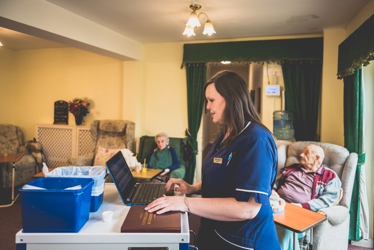Blog

Care Home Occupancy - Why Is It Important?
Read Article on Care Home Occupancy - Why Is It Important?
Care Home Software - How Long Does It Take To Implement?
Read Article on Care Home Software - How Long Does It Take To Implement?
Technology-Enabled Care in Home Care Services
Read Article on Technology-Enabled Care in Home Care Services
A Guide to Risk Based Auditing
Read Article on A Guide to Risk Based Auditing
Sustainability in Health and Social Care
Read Article on Sustainability in Health and Social Care
Cultural Competence in Care - A Guide for Care Workers
Read Article on Cultural Competence in Care - A Guide for Care Workers
Winter Fuel Payment in the UK: What Care Providers and Families Need to Know
Read Article on Winter Fuel Payment in the UK: What Care Providers and Families Need to Know
How to Market a Domiciliary or Residential Business in the UK
Read Article on How to Market a Domiciliary or Residential Business in the UK
Cost Control Software Care Homes UK
Read Article on Cost Control Software Care Homes UK
Key Lines of Enquiry (KLOE) explained
Read Article on Key Lines of Enquiry (KLOE) explained
CQC PIR – What Does PIR Stand For?
Read Article on CQC PIR – What Does PIR Stand For?
What is Person-Centred Care and Why is it Important?
Read Article on What is Person-Centred Care and Why is it Important?What is the Care Certificate?
Read Article on What is the Care Certificate?
Home Care Marketing – How to Advertise My Home Care Business
Read Article on Home Care Marketing – How to Advertise My Home Care Business

 AU & NZ
AU & NZ
 SG
SG
 MY
MY
 US
US
 IE
IE